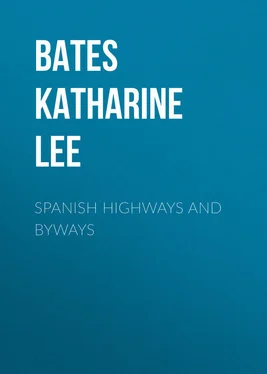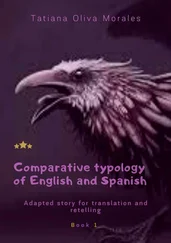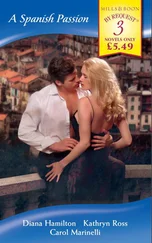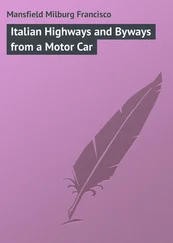Katharine Bates - Spanish Highways and Byways
Здесь есть возможность читать онлайн «Katharine Bates - Spanish Highways and Byways» — ознакомительный отрывок электронной книги совершенно бесплатно, а после прочтения отрывка купить полную версию. В некоторых случаях можно слушать аудио, скачать через торрент в формате fb2 и присутствует краткое содержание. ISBN: , Жанр: foreign_antique, foreign_prose, Путешествия и география, на английском языке. Описание произведения, (предисловие) а так же отзывы посетителей доступны на портале библиотеки ЛибКат.
- Название:Spanish Highways and Byways
- Автор:
- Жанр:
- Год:неизвестен
- ISBN:http://www.gutenberg.org/ebooks/38767
- Рейтинг книги:5 / 5. Голосов: 1
-
Избранное:Добавить в избранное
- Отзывы:
-
Ваша оценка:
- 100
- 1
- 2
- 3
- 4
- 5
Spanish Highways and Byways: краткое содержание, описание и аннотация
Предлагаем к чтению аннотацию, описание, краткое содержание или предисловие (зависит от того, что написал сам автор книги «Spanish Highways and Byways»). Если вы не нашли необходимую информацию о книге — напишите в комментариях, мы постараемся отыскать её.
Spanish Highways and Byways — читать онлайн ознакомительный отрывок
Ниже представлен текст книги, разбитый по страницам. Система сохранения места последней прочитанной страницы, позволяет с удобством читать онлайн бесплатно книгу «Spanish Highways and Byways», без необходимости каждый раз заново искать на чём Вы остановились. Поставьте закладку, и сможете в любой момент перейти на страницу, на которой закончили чтение.
Интервал:
Закладка:
Thus it is I am inclined to believe we lay down under an orange tree and dreamed a dream of the "Arabian Nights." Or perhaps it was only another freak of the Carnival. At all events, a cup of coffee, and the world was changed. Cordova! A midsummer heat, a land of vineyards and olive groves, palms and aloes, a white, unearthly city, with narrow, silent, deathlike streets, peopled only by drowsy beggars and by gliding maskers that seemed more real than this Oriental picture in which they moved, high walls with grated, harem-like windows, and an occasional glimpse, through some arched doorway, into a marble-floored, rose-waving, fountain-playing patio, enchanted and mysterious, a dream within a dream. Cordova is more than haunted. It is itself a ghost. The court of the Spanish caliphs, at once the Mecca and the Athens of the West, a holy city which counted its baths and mosques by hundreds, a seat of learning whose universities were renowned for mathematics and philosophy, chemistry, astronomy, and medicine, and within whose libraries were treasured manuscripts by hundreds of thousands, a star of art and poetry, it ever reproaches, by this lovely, empty shadow, the Christian barbarism that spurned away the Moors.
The insulted Mosque of Cordova well-nigh makes Mohammedans of us all. Entering by the studded Door of Pardon into the spacious Court of Oranges, with its ancient trees and sparkling quintette of fountains, one passes onward under the Arch of Blessings into a marble forest of slender, sculptured pillars. The wide world, from Carthage to Damascus, from Jerusalem to Ephesus and Rome, was searched for the choicest shafts of jasper, breccia, alabaster, porphyry, until one thousand four hundred precious columns bore the glory of rose-red arches and wonder-roof of gilded and enamelled cedar. More than seven thousand hanging lamps of bronze, filled with perfumed oil, flashed out the mosaic tints, – golds, greens, violets, vermilions, – of ceiling, walls, and pavement. All this shining sanctity culminated in the Mihrâb, or Prayer-Niche, an octagonal recess whose shell-shaped ceiling is hollowed from a single block of pure white marble. This Holy of Holies held the Koran, bound in gold and pearls, around which the Faithful were wont to make seven turns upon their knees, an act of devotion that has left indisputable grooves in the marble of the pavement.
The Christian conquerors splashed whitewash over the exquisite ceiling, hewed down the pillars of the outer aisles to give space for a fringe of garish chapels, and even chopped away threescore glistening columns in the centre to make room for an incongruous Renaissance choir, with an altar of silver gilt and a big pink retablo. We could have wandered for endless hours among the strange half-lights and colored shadows of that petrified faith of Islam, marvelling on the processes of time. It is claimed that the Arab mosque rose on the site of a Roman temple, whence Mahomet drove forth Janus, to be in his own turn expelled by Christ. The race of those who bowed themselves in this gleaming labyrinth has fared ill at Spanish hands. Even now a Moor, however courteous and cultured, is refused admission to certain Castilian churches, as the Escorial.
How did we ever part from Cordova, from her resplendent, desecrated mosque, her stone lanes of streets, her hinted patios, the Moorish mills and Roman bridge of her yellow Guadalquivír? It must all have been a morning dream, for the early afternoon saw us tucked away in another second-class carriage speeding toward Granada.
We were in beautiful Andalusia, la tierra de Maria Santisima . The green slopes of the Sierra Morena, planted to the top with olive groves, watched the beginnings of our journey, and banks of strange, sweet flowers, with glimpses of Moorish minarets and groups of dark-faced, bright-sashed peasants, looking as if they had just stepped down from an artist's easel, beguiled us of all physical discomforts save heat and thirst. When the sun was at its sorest, the train drew up at a tumble-down station, and we looked eagerly for the customary water seller, with his cry of "Water! Fresh water! Water cooler than snow!" But it was too warm for this worthy to venture out, and our hopes fastened on a picturesque old merchant seated in a shaft of cypress shade beside a heap of golden oranges. Those juicy globes were a sight to madden all the parched mouths in the train, and imploring voices hailed the proprietor from window after window. But our venerable hidalgo smoked his cigarette in tranquil ease, disdaining the vulgarities of barter. At the very last moment we persuaded a ragged boy in the throng of bystanders to fetch us a hatful of the fruit. Then the peasant languidly arose, followed the lad to our window, named an infinitesimal price, and received his coin with the bow of a grandee. He was no hustler in business, this Andalusian patriarch, but his dignity was epic and his oranges were nectar.
We shall never know whether or not we had an adventure that evening. A wild-eyed tatterdemalion swung himself suddenly into our compartment and demanded our tickets, but as all the Andalusians looked to our unaccustomed view like brigands, we did not discriminate against this abrupt individual, but yielded up our strips of pasteboard without demur. A swarthy young Moor of Tangier, the only other occupant of the carriage, sharply refused to surrender his own until the intruder should produce a conductor's badge, whereupon the stranger swore in gypsy, or "words to that effect," wrenched open the door and fled, like Judas, into the outer dark. The Moor excitedly declared to us that our tickets would be called for at the station in Granada, that we should have to pay their price to the gate-keeper, and that our irregular collector, hiding somewhere along the train, would be admitted by that corrupt official to a share in the spoils. Moved by our dismay, this son of the desert thrust his head through the window at the next stop, and roared so lustily for the conductor and the civil guard that, in a twinkling, the robber, if he was a robber, popped up in the doorway again, like a Jack-in-the-box, and rudely flung us back the tickets. Thereupon our benefactor, if he was a benefactor, solemnly charged us never, on the Granada road, to give up anything to anybody who wore no gilt on his cap.
More and more the purple mountains were folding us about, until at last we arrived at Granada, too tired for a thrill. Mr. Gulick's constant care, which had secured us harborage in Madrid, had provided welcome here. Content in mere well-being, it was not until the following afternoon that tourist enterprise revived within us. Then we somewhat recklessly wandered down from the Alhambra hill into the heart of the People's Carnival, a second Sunday of festival given over to the enjoyment of the lower classes. The grotesque costumes were coarser than ever and the fun was rougher. The maskers cracked whips at the other promenaders, blew horns, shook rattles, and struck about them with painted bladders, but the balconies were bright with the bewitching looks of Andalusian beauties, each vying with the rest in throwing the many-colored serpentinas , curly lengths of paper that crisp themselves in gaudy fetters about their captives. A single business house in Granada claimed to have sold over a million of these, representing a value of some ten thousand dollars, during Carnival week. Southern Spain was grumbling bitterly against the Government and the war taxes, and in Seville, where a tax is put on masks, the Carnival had been given up this year as last; but Granada would not be cheated of her frolic. Our study of this closing phase of the Carnival was cut short by the recollection that it was, above all, the fiesta of pickpockets. Finding ourselves, on the superb Paseo del Salón , in the midst of a hooting, jostling, half-gypsy mob, rained upon with confetti , called upon in broken French and English, pressed upon by boys and beggars, and happening to catch sight of the stately bronze statue of Columbus which the women of Granada had recently stoned because, by discovering America, he brought all the Cuban troubles upon Spain, we took the hint of the wise navigator's eye and decided that we two stray Yankees might be as well off somewhere else. "Feet, why do I love you?" say the Spaniards; and so said we, suiting the action to the word.
Читать дальшеИнтервал:
Закладка:
Похожие книги на «Spanish Highways and Byways»
Представляем Вашему вниманию похожие книги на «Spanish Highways and Byways» списком для выбора. Мы отобрали схожую по названию и смыслу литературу в надежде предоставить читателям больше вариантов отыскать новые, интересные, ещё непрочитанные произведения.
Обсуждение, отзывы о книге «Spanish Highways and Byways» и просто собственные мнения читателей. Оставьте ваши комментарии, напишите, что Вы думаете о произведении, его смысле или главных героях. Укажите что конкретно понравилось, а что нет, и почему Вы так считаете.












